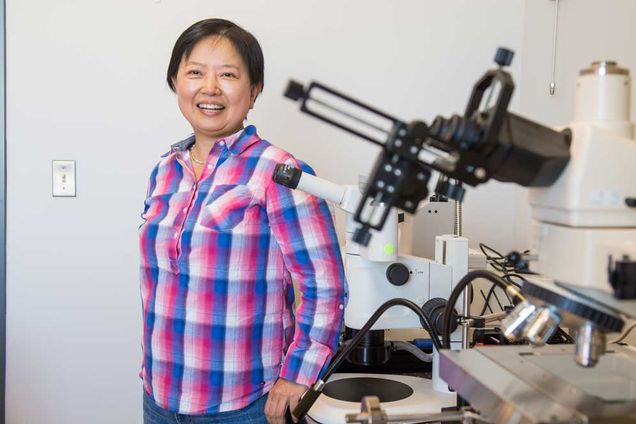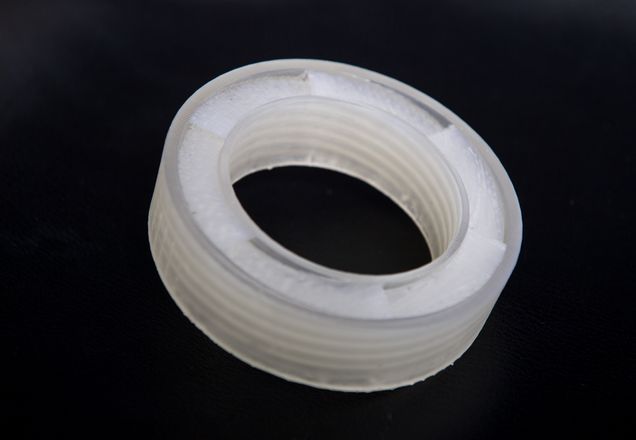A Zhang Patent Honored Again
For the second year in a row, Professor Xin Zhang (ME, ECE, BME, MSE) was honored at the Boston Patent Law Association’s (BPLA) annual Invented Here! event, celebrating New England innovators and their inventions.

Among this year’s most promising technologies, the 2021 BPLA ceremony featured a new metamaterial developed by Zhang that can be shaped to block 94 percent of sound waves from a source of noise, without blocking air flow. Unlike the acoustic baffles seen on highways and in recording studios, Zhang’s apparatus is not a sheer, solid barrier but rather an open ring that lets through air even as it stops noise in its tracks. The structure is mathematically designed to catch sound waves and fling them back the way they came.

Photo by Cydney Scott.
Zhang is working to advance the technology for a range of applications, from jet engines to drone propeller blades, HVAC systems to hospital equipment. Her collaborators on the patent, “Air-transparent selective sound silencer using ultra-open metamaterial,” were Reza Ghaffarivardavagh (ENG’19)—then a grad student of Zhang’s, now an acoustic transducer engineer at Apple—and Stephan Anderson, a MED professor of radiology and COE professor of mechanical engineering.
“A precision-designed, sound-blocking metamaterial to end noise pollution—that is as cool as it sounds,” says Zhang. “We have received initial interest from large companies across many industries, including aerospace, automotive, manufacturing, energy and healthcare. We are now working to address the viability of each potential application and are excited to explore many new opportunities where our design could benefit people, our environment, and working conditions by reducing noise.”
In 2020, the BPLA honored Zhang for her work on an “Apparatus for Improving Magnetic Resonance Imaging.” Collaborators included Anderson as well as Xiaoguang Zhao (ENG’16), a MED assistant research professor of radiology. The team’s innovation is an array of helical resonators, made of a magnetic metamaterial they developed. When a patient inside an MRI scanner lies on a slab containing these resonators, the device temporarily boosts the body’s low-energy emissions, resulting in an improvement in MRI image quality, potentially in less time and at lower cost.
“Maximizing the efficiency of the MRI examination is paramount to maximizing the capacity, revenue, as well as the patient experience of this imaging technology,” says Zhang. “We also envision this metamaterial technology having the potential to be applied to ultra-low field MRI, which uses magnetic fields that are orders of magnitude lower than the machines currently in use. This offers the possibility for dramatically increasing the availability of MRI technology all around the world.”